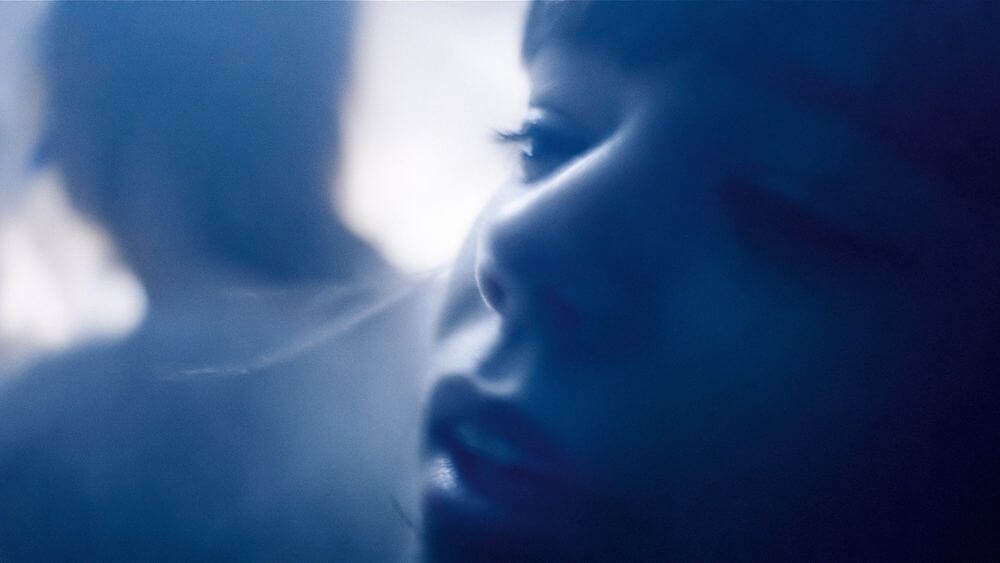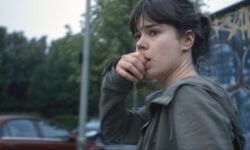Victoria
First thing’s first: this film is composed of a two and half hour tracking shot. We find the titular character in a club and we follow her out onto the streets; walking from road to road, from building to building, we go through car rides and running shootouts and robberies, but there’s never a single cut. Nothing on this scale has been done before: Hitchcock’s Rope and Iñárritu’s Birdman have chained a small number of long takes together to give the illusion of a totally seamless film, and much shorter films set in one location have achieved this without cheating. However, Victoria takes you around Berlin with as much high-wire excitement as any action movie out there for 140 straight minutes.
On top of that, this isn’t just a film to sit, watch, admire, and think “wow, that must have been quite difficult”. The brilliantly controlled long shot serves a purpose: we’re locked into total real time, and, like Victoria, we’re never allowed to escape from the ongoing situation – as stakes go higher and higher, tension becomes tighter and tighter, and we’re not given a release until the credits. Consequently, I’d rate this as the most stressful film I’ve ever watched, and it’s absolutely exhilarating for it.
A main achievement of the film is its believable, gradual escalation of events
It takes a while for the plot to take off, which makes us let our guard down before everything truly kicks off. Victoria, who’s come on holiday to Berlin alone, comes out of a nightclub (a harsh beat and disorientating strobe lighting preps the viewer to prepare themselves for an equally unrelenting story), and walks around the city with some new friends she’s made. They’re a bit wild – they encourage Victoria to steal from a corner shop with them, and one briefly gets in a fight with some strangers – but in this they’re somehow fun and entirely charming. Victoria starts to fall for one of them, and the first forty minutes begin to appear like some über-cool German equivalent to Amelie’s dream-like fey Parisian charm.
A main achievement of the film is its believable, gradual escalation of events. My friend compared it to a Derren Brown show where he slowly escalated the extremity of things he made someone do until he could convince them to push someone off a roof top. Similarly here, you truly come to believe that Victoria and her friends are sympathetic, good people who’ve been roped by circumstances beyond their control into performing an armed robbery (it could happen to anyone, apparently).
She’s the reason this film will be remembered for more than its central cinematic stunt
Again, the extremely long tracking shot keeps you with them the entire time, and the frequent returns to Victoria’s face let you feel every ounce of stress she accumulates. This film will be an international breakout role for lead actress Laia Costa: she carries the film and its tonal shifts with an amazing emotional range, as well as a brilliant chemistry with lead actor Frederick Lau. She’s the reason this film will be remembered for more than its central cinematic stunt, extremely impressive though it is.
Nils Frahm’s ambient, piano based soundtrack provides the only sort of relief in a film that never rests: when it appears, it drowns out the rest of the sound and gives the action a dreamy, unreal vibe (an effective contrast for just how real this film feels); sometimes it’s beautiful and relaxing, sometimes more Lynchian, humming, and haunting – yet, it’s always effective.
The film achieves on a great deal of levels being one of the more remarkable, unique things to have been in cinemas for a while. Its two and a half unbroken hours fly by.
Director: Sebastian Schipper
Cast: Laia Costa, Frederick Lau, Franz Rogowski, Burak Yigit, Max Mauff
Running time: 140 minutes
Country: Germany



Comments